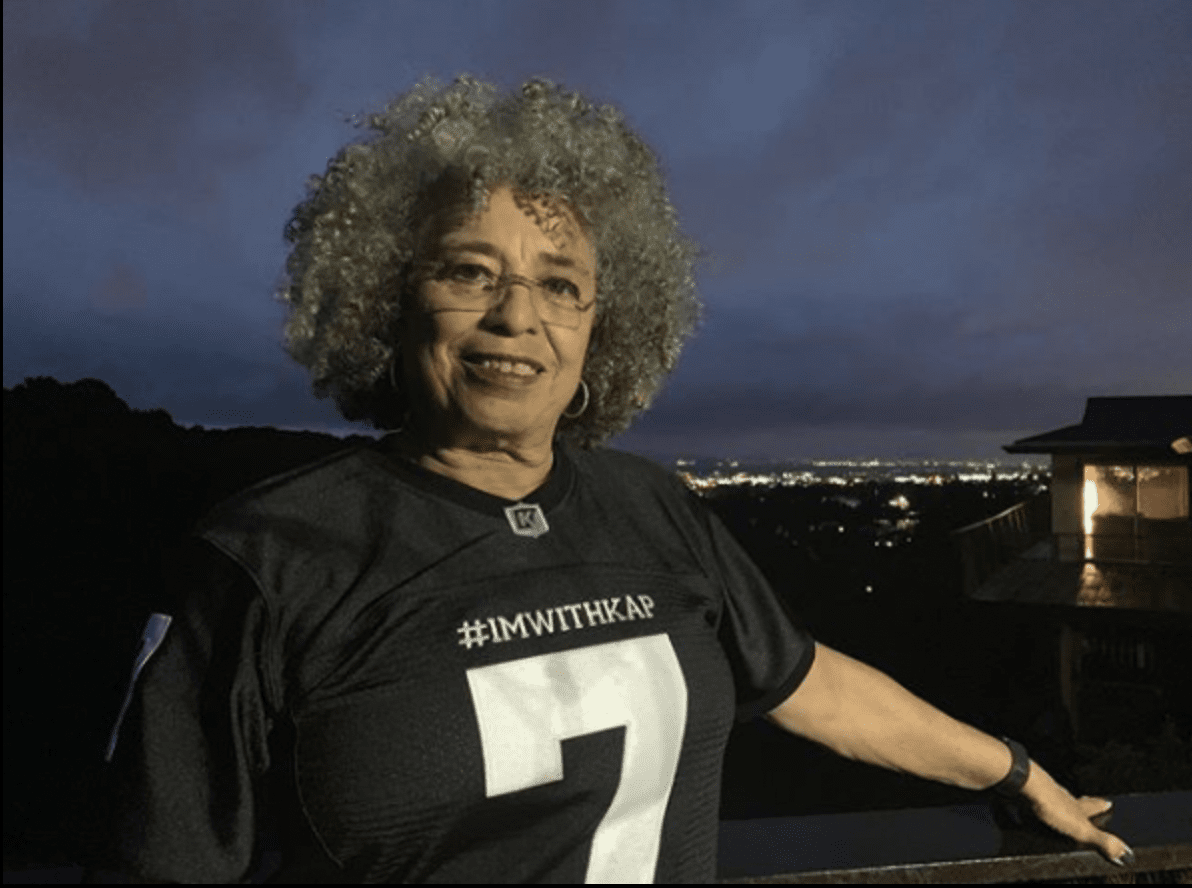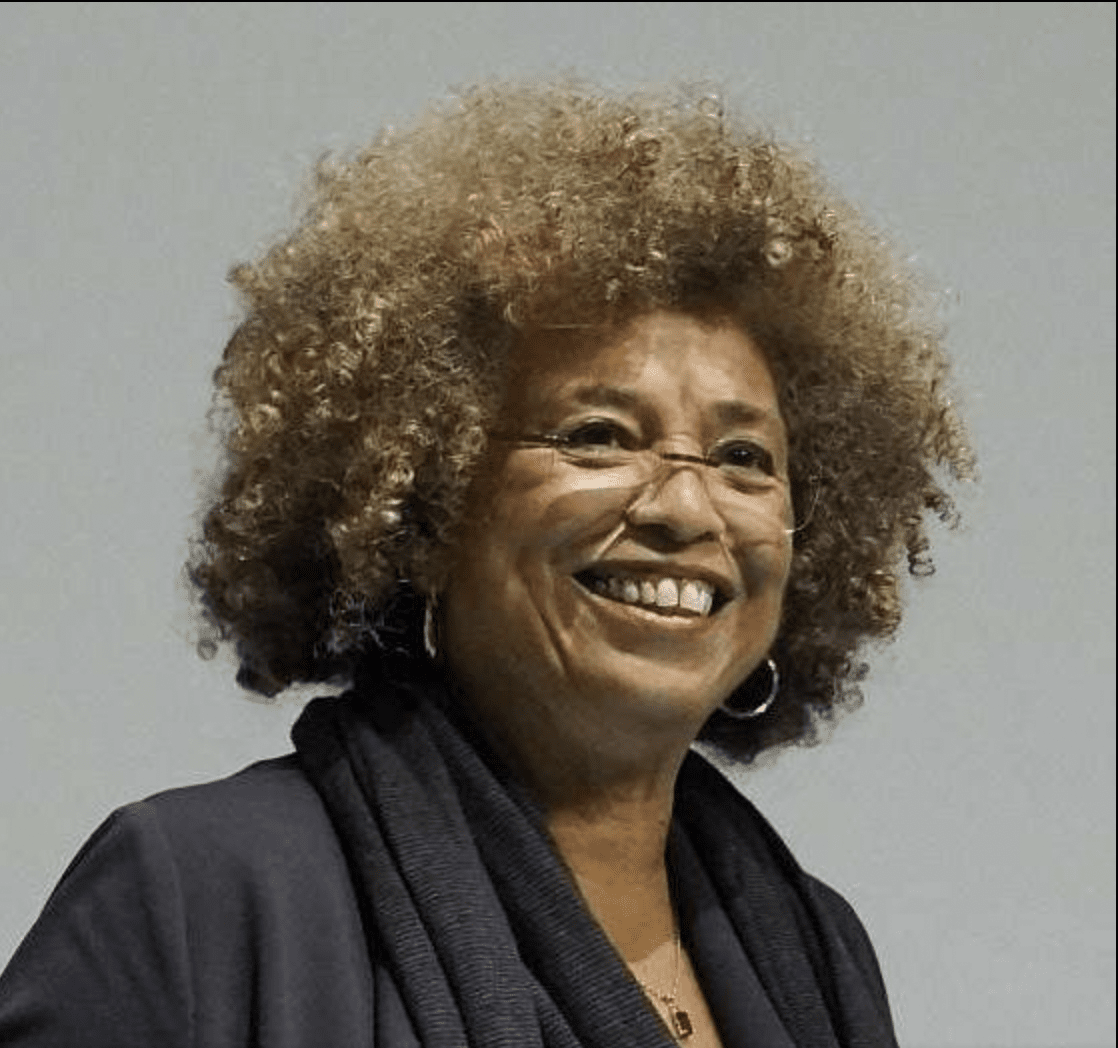Table of Contents
ToggleAngela Y. Davis is a renowned public intellectual, activist, and author whose work has focused on the intersections of race, class, gender, and imprisonment.
In this blog post, we’ll explore some of her most insightful quotes on social justice and activism. Davis’ words offer valuable insights into the importance of standing up for what’s right and fighting for change.
Her words are sure to motivate readers to take a stand against injustice in their own communities.
Angela Y. Davis Quotes 2026
1. “I am no longer accepting the things I cannot change. I am changing the things I cannot accept.”― Angela Y. Davis
2. “Radical simply means “grasping things at the root.”― Angela Davis
3. “The idea of freedom is inspiring. But what does it mean? If you are free in a political sense but have no food, what’s that? The freedom to starve?”― Angela Y. Davis
4. “You have to act as if it were possible to radically transform the world. And you have to do it all the time.”― Angela Davis
5. “[Prison] relieves us of the responsibility of seriously engaging with the problems of our society, especially those produced by racism and, increasingly, global capitalism.”― Angela Y. Davis
6. “We have to talk about liberating minds as well as liberating society.”― Angela Davis
7. “Prisons do not disappear social problems, they disappear human beings. Homelessness, unemployment, drug addiction, mental illness, and illiteracy are only a few of the problems that disappear from public view when the human beings contending with them are relegated to cages.”― Angela Davis
8. “In a racist society it is not enough to be non-racist, we must be anti-racist.”― Angela Y. Davis
9. “If they come for me in the morning, they will come for you in the night.”― Angela Davis
10. “Sometimes we have to do the work even though we don’t yet see a glimmer on the horizon that it’s actually going to be possible.”― Angela Y. Davis
11. “When Obama was elected president, a prisoner said “one black man in the White House doesn’t make up for one million black men in the Big House.”― Angela Y. Davis
12. “We know the road to freedom has always been stalked by death.”― Angela Davis
13. “It is in collectivities that we find reservoirs of hope and optimism.”― Angela Y. Davis
14. “The prison therefore functions ideologically as an abstract site into which undesirables are deposited, relieving us of the responsibility of thinking about the real issues afflicting those communities from which prisoners are drawn in such disproportionate numbers. This is the ideological work that the prison performs—it relieves us of the responsibility of seriously engaging with the problems of our society, especially those produced by racism and, increasingly, global capitalism.”― Angela Y. Davis
15. “I don’t think we have any alternative other than remaining optimistic. Optimism is an absolute necessity, even if it’s only optimism of the will, as Gramsci said, and pessimism of the intellect.”― Angela Y. Davis
16. “I feel that if we don’t take seriously the ways in which racism is embedded in structures of institutions, if we assume that there must be an identifiable racist who is the perpetrator, then we won’t ever succeed in eradicating racism.”― Angela Y. Davis
17. “Everyone is familiar with the slogan “The personal is political” — not only that what we experience on a personal level has profound political implications, but that our interior lives, our emotional lives are very much informed by ideology. We oftentimes do the work of the state in and through our interior lives. What we often assume belongs most intimately to ourselves and to our emotional life has been produced elsewhere and has been recruited to do the work of racism and repression.”― Angela Y. Davis
18. “We have inherited a fear of memories of slavery. It is as if to remember and acknowledge slavery would amount to our being consumed by it. As a matter of fact, in the popular black imagination, it is easier for us to construct ourselves as children of Africa, as the sons and daughters of kings and queens, and thereby ignore the Middle Passage and centuries of enforced servitude in the Americas. Although some of us might indeed be the descendants of African royalty, most of us are probably descendants of their subjects, the daughters and sons of African peasants or workers.”― Angela Davis
19. “Pregressive art can assist people to learn not only about the objective forces at work in the society in which they live, but also about the intensity social character of their interior lives. Ultimately, it can propel people toward social emancipation”― Angela Davis
20. “I try never to take myself for granted as somebody who should be out there speaking. Rather, I’m doing it only because I feel there’s something important that needs to be conveyed.”― Angela Davis
21. “In many ways you can say that the prison serves as an institution that consolidates the state’s inability and refusal to address the most pressing social problems of this era.”― Angela Y. Davis
22. “Whenever you conceptualize social justice struggles, you will always defeat your own purposes if you cannot imagine the people around whom you are struggling as equal partners.”― Angela Y. Davis
23. “If we do not know how to meaningfully talk about racism, our actions will move in misleading directions.”― Angela Y. Davis
24. “Anyway I don’t think we can rely on governments, regardless of who is in power, to do the work that only mass movements can do.”― Angela Y. Davis
25. “One of the reasons that so many people of color and poor people are in prison is that the deindustrialization of the economy has led to the creation of new economies and the expansion of some old ones – I have already mentioned the drug trade and the market for sexual services. At the same time, though, there are any number of communities that more than welcome prisons as a source of employment. Communities even compete with one another to be the site where new prisons will be constructed because prisons create a significant number of relatively good jobs for their residents”― Angela Davis
26. “A woman of color formation might decide to work around immigration issues. This political commitment is not based on the specific histories of racialized communities or its constituent members, but rather constructs an agenda agreed upon by all who are a part of it. In my opinion, the most exciting potential of women of color formations resides in the possibility of politicizing this identity – basing the identity on politics rather than the politics on identity.”― Angela Davis
27. “Our histories never unfold in isolation. We cannot truly tell what we consider to be our own histories without knowing the other stories. And often we discover that those other stories are actually our own stories.”― Angela Y. Davis
28. “Neoliberal ideology drives us to focus on individuals, ourselves, individual victims, individual perpetrators. But how is it possible to solve the massive problem of racist state violence by calling upon individual police officers to bear the burden of that history and to assume that by prosecuting them, by exacting our revenge on them, we would have somehow made progress in eradicating racism?”― Angela Y. Davis
29. “If indeed all lives mattered, we would not need to emphatically proclaim that “Black Lives Matter.” Or, as we discover on the BLM website: Black Women Matter, Black Girls Matter, Black Gay Lives Matter, Black Bi Lives Matter, Black Boys Matter, Black Queer Lives Matter, Black Men Matter, Black Lesbians Matter, Black Trans Lives Matter, Black Immigrants Matter, Black Incarcerated Lives Matter. Black Differently Abled Lives Matter. Yes, Black Lives Matter, Latino/Asian American/Native American/Muslim/Poor and Working-Class White Peoples Lives matter. There are many more specific instances we would have to nane before we can ethically and comfortably claim that All Lives Matter.”― Angela Y. Davis
30. “The prison has become a black hole into which the detritus of contemporary capitalism is deposited. Mass imprisonment generates profits as it devours social wealth, and thus it tends to reproduce the very conditions that lead people to prison. There are thus real and often quite complicated connections between the deindustrialization of the economy—a process that reached its peak during the 1980s—and the rise of mass imprisonment, which also began to spiral during the Reagan-Bush era. However, the demand for more prisons was represented to the public in simplistic terms. More prisons were needed because there was more crime. Yet many scholars have demonstrated that by the time the prison construction boom began, official crime statistics were already falling.”― Angela Y. Davis
31. “What can we learn from women like Gertrude “Ma” Rainey, Bessie Smith, and Billie Holiday that we may not be able to learn from Ida B. Wells, Anna Julia Cooper, and Mary Church Terrell? If we were beginning to appreciate the blasphemies of fictionalized blues women – especially their outrageous politics of sexuality – and the knowledge that might be gleaned from their lives about the possibilities of transforming gender relations within black communities, perhaps we also could benefit from a look at the artistic contributions of the original blues women.”― Angela Y. Davis
32. “If Black people had simply accepted a status of economic and political inferiority, the mob murders would probably have subsided. But because vast numbers of ex-slaves refused to discard their dreams of progress, more than ten thousand lynchings occurred during the three decades following the war.”― Angela Y. Davis
33. “The roots of sexism and homophobia are found in the same economic and political institutions that serve as the foundation of racism in this country and, more often than not, the same extremist circles that inflict violence on people of color are responsible for the eruptions of violence inspired by sexist and homophobic biases. Our political activism must clearly manifest our understanding of these connections.”― Angela Y. Davis
34. “Deviant men have been constructed as criminal, while deviant women have been constructed as insane.”― Angela Y. Davis
35. “Woman” was the test, but not every woman seemed to qualify. Black women, of course, were virtually invisible within the protracted campaign for woman suffrage. As for white working-class women, the suffrage leaders were probably impressed at first by the organizing efforts and militancy of their working-class sisters. But as it turned out, the working women themselves did not enthusiastically embrace the cause of woman suffrage.”― Angela Y. Davis
36. “The food we eat masks so much cruelty. The fact that we can sit down and eat a piece of chicken without thinking about the horrendous conditions under which chickens are industrially bred in this country is a sign of the dangers of capitalism, how capitalism has colonized our minds. The fact that we look no further than the commodity itself, the fact that we refuse to understand the relationships that underly the commodities that we use on a daily basis. And so food is like that.”― Angela Y. Davis
37. “Feminism insists on methods of thought and action that urge us to think about things together that appear to be separate, and to disaggregate things that appear to naturally belong together.”― Angela Y. Davis
38. “It is essential to resist the depiction of history as the work of heroic individuals in order for people today to recognize their potential agency as a part of an ever-expanding community of struggle. What”― Angela Y. Davis
39. “But there’s a message there for everyone and it is that people can unite, that democracy from below can challenge oligarchy, that imprisoned migrants can be freed, that fascism can be overcome, and that equality is emancipatory. The”― Angela Y. Davis
40. “Imprisonment is increasingly used as a strategy of deflection of the underlying social problems—racism, poverty, unemployment, lack of education, and so on.”― Angela Y. Davis
Quick Links
- Walt Whitman Quotes To Motivate And Encourage You
- Powerful Vladimir Putin Quotes to Boost Your Motivation
- Helen Keller Quotes To Never Give Up In Life
Conclusion: Angela Y. Davis Quotes 2026
Angela Y. Davis Quotes are powerful words that can be used to empower individuals, motivate change, and inspire others. A selection of her most notable quotes have been shared in this blog post, each with a corresponding explanation to help further illustrate their meaning.
We hope you take the time to read through them and reflect on how they might apply to your life. Share your favorite quote in the comments below and let us know what it means to you!



